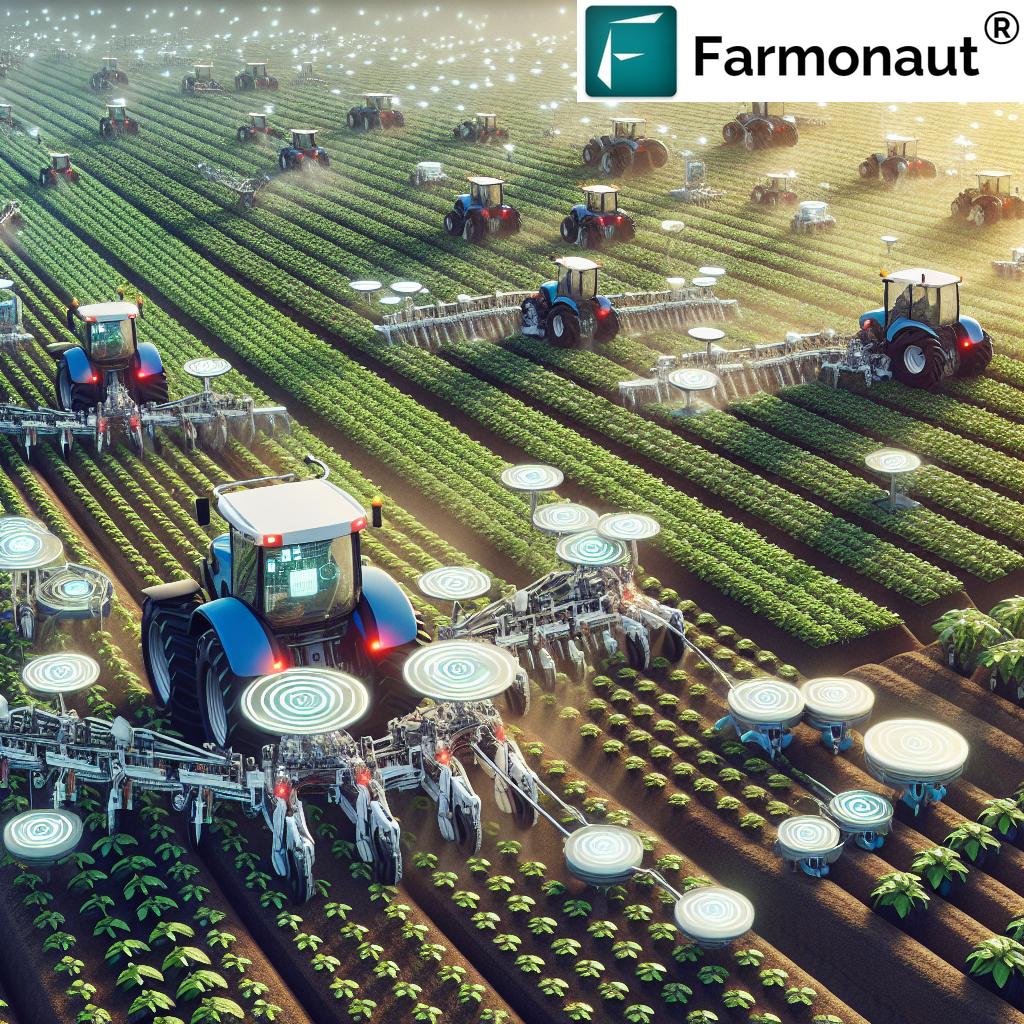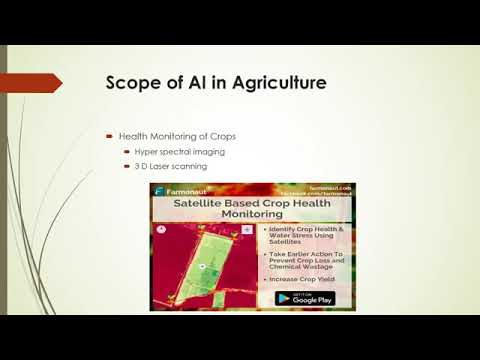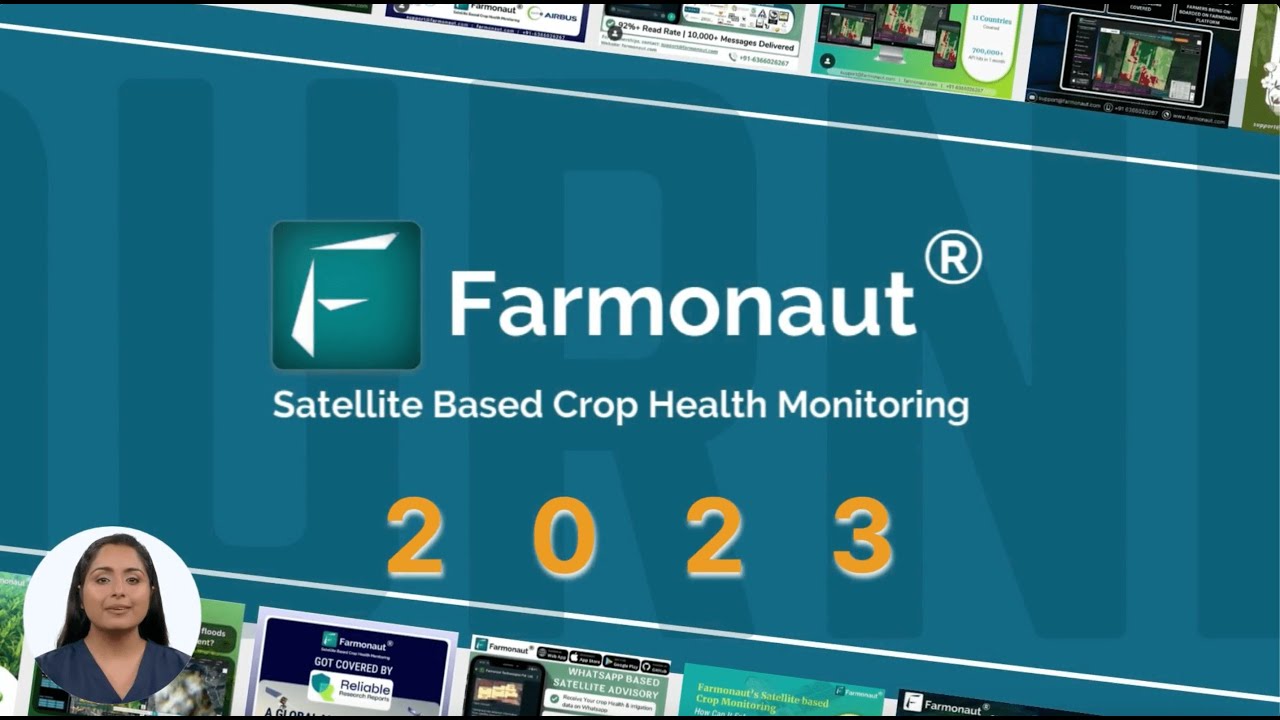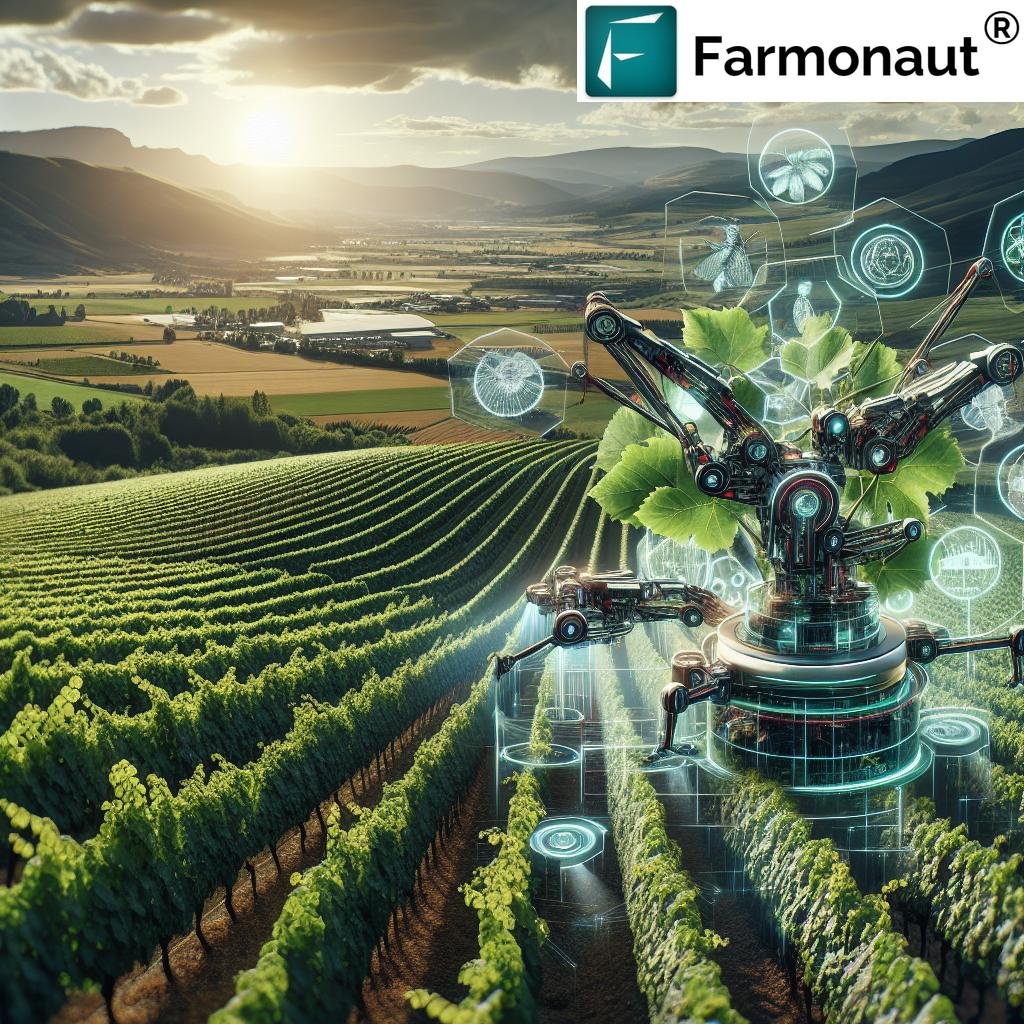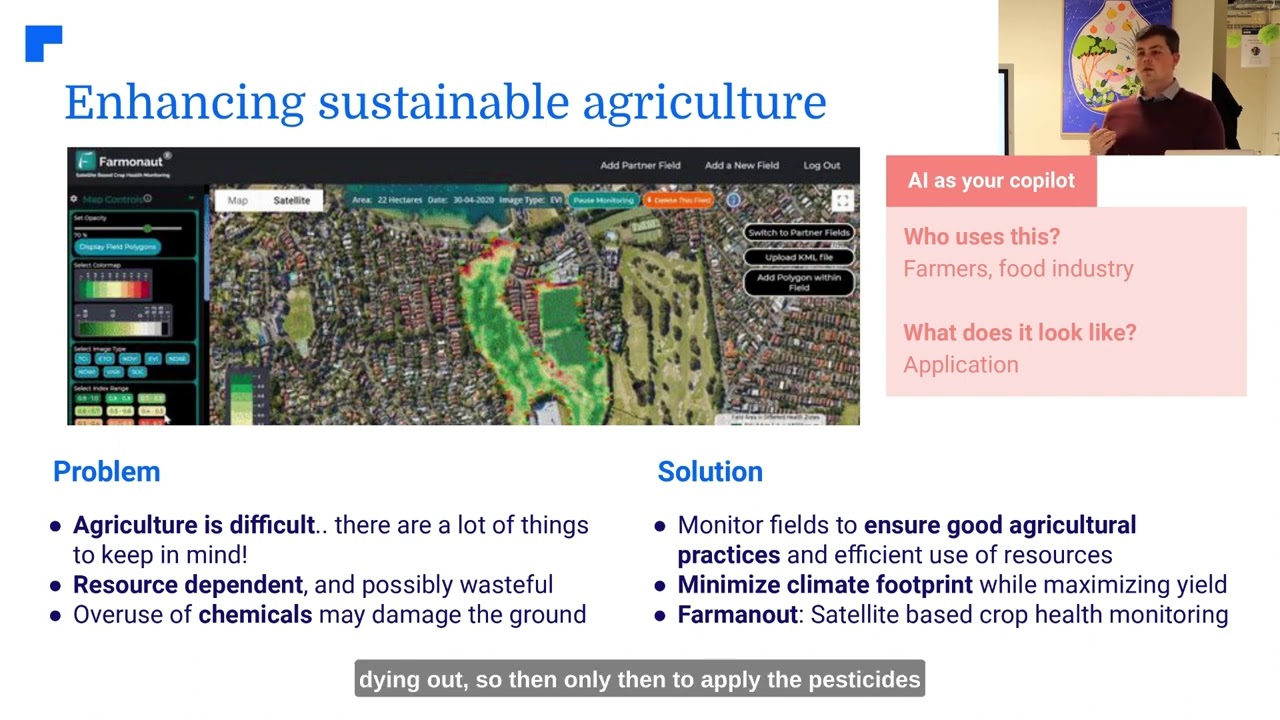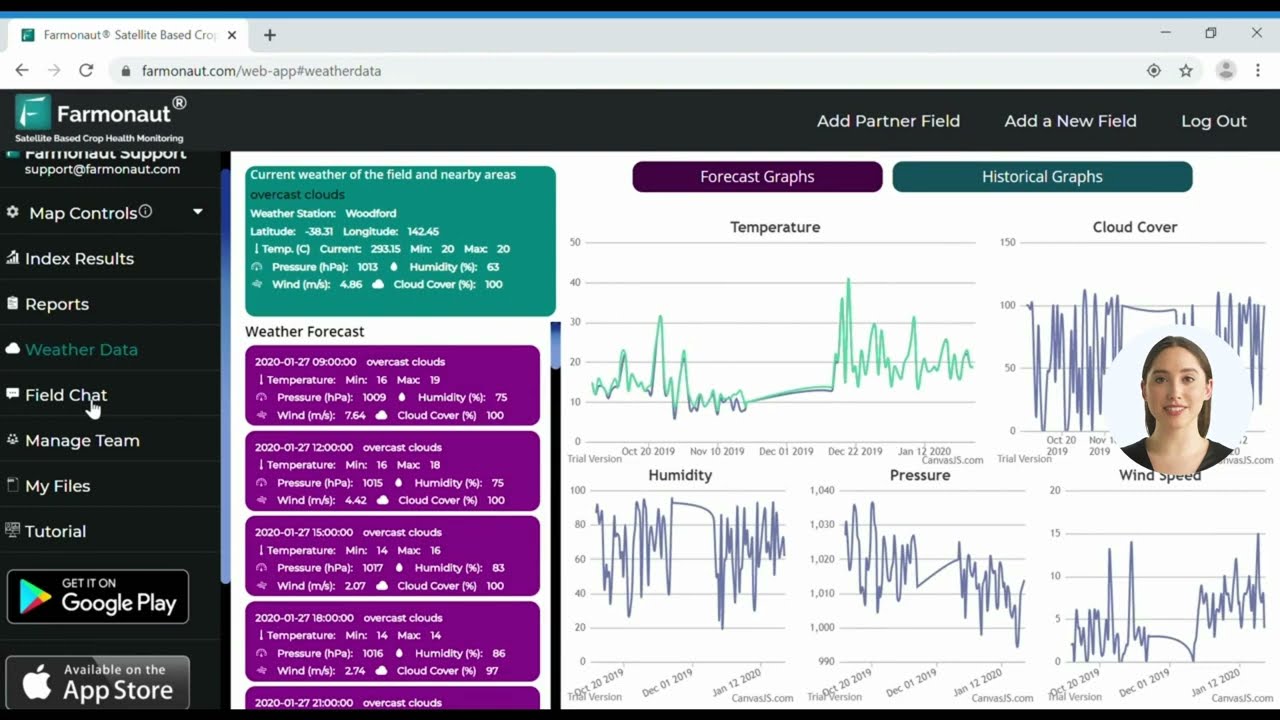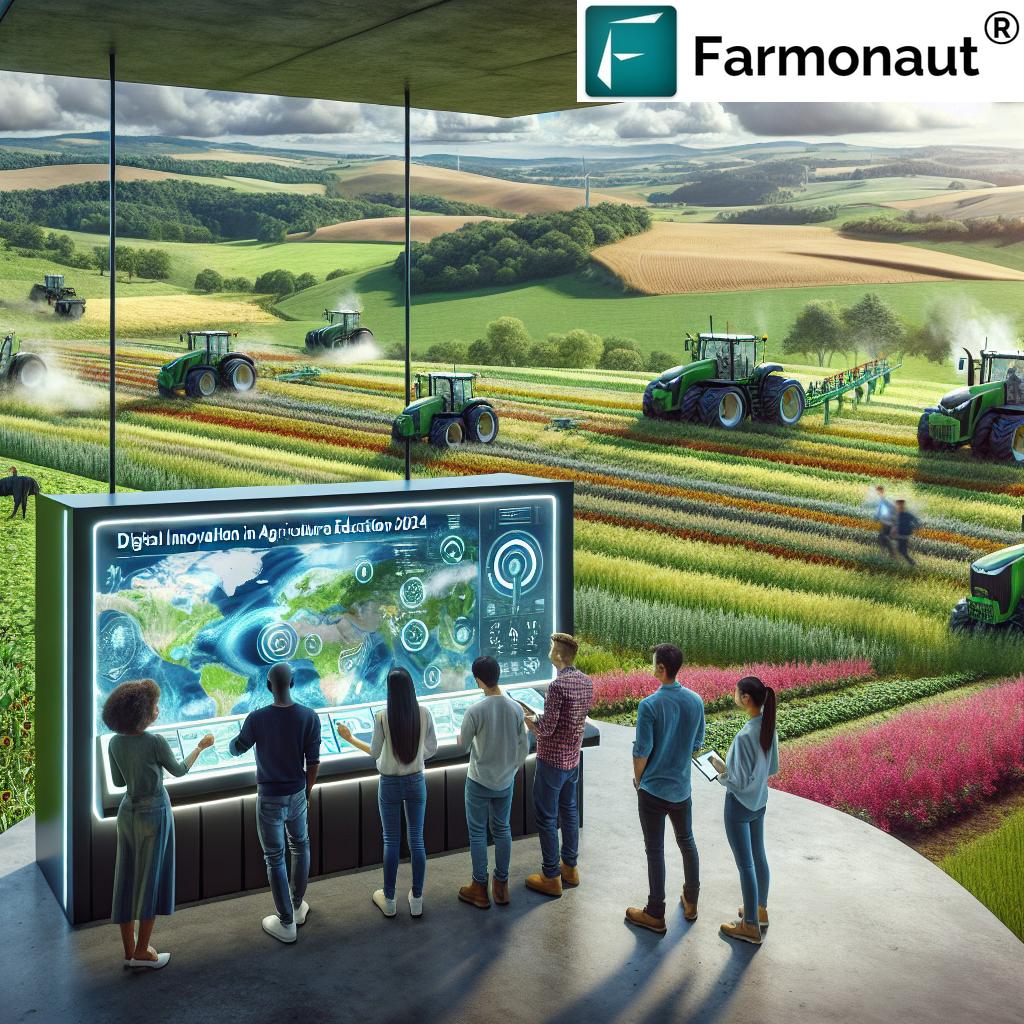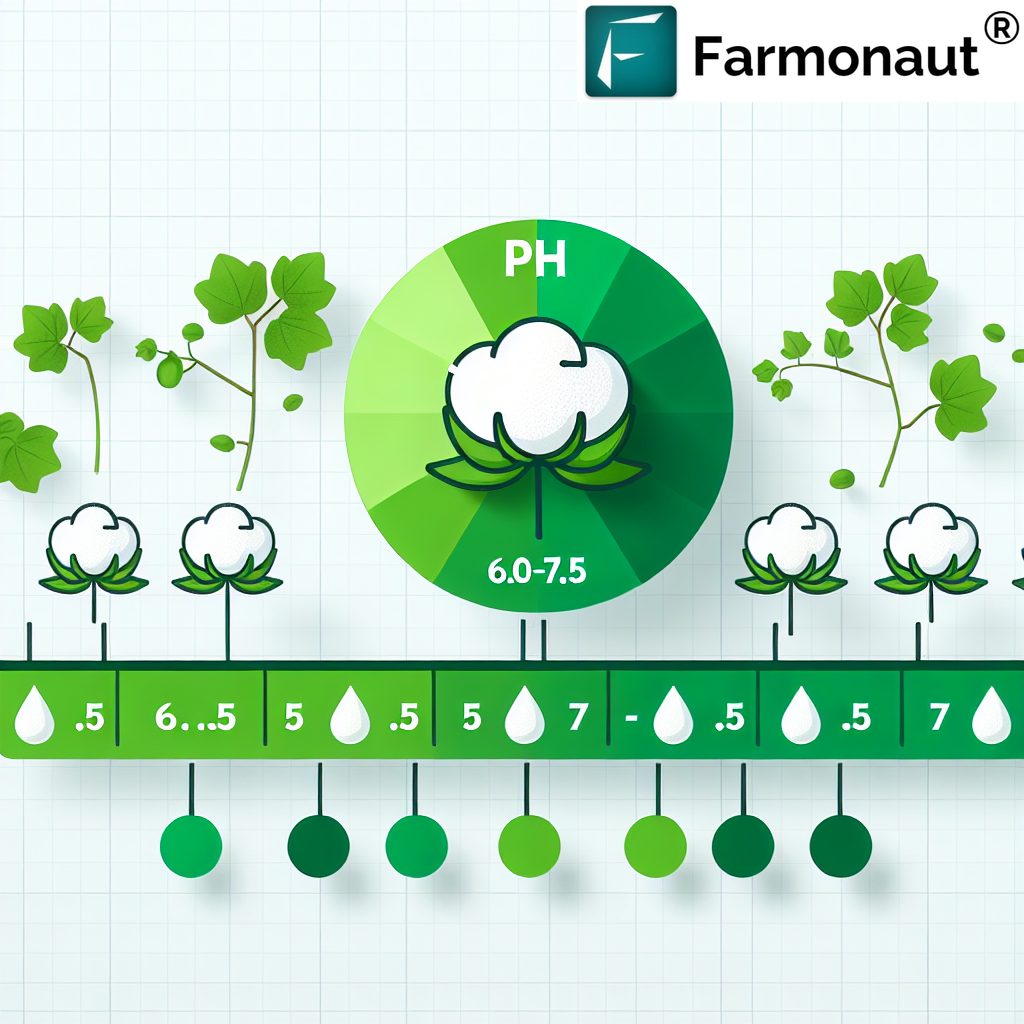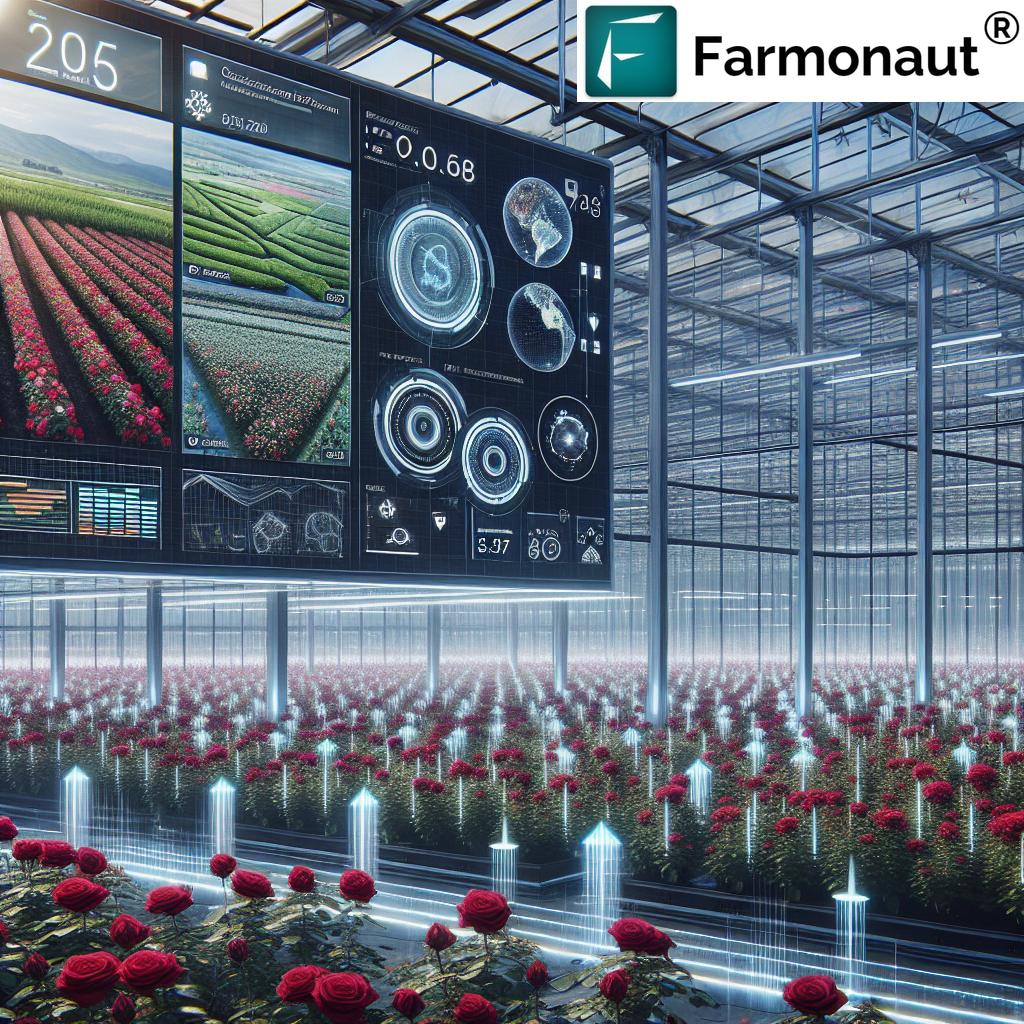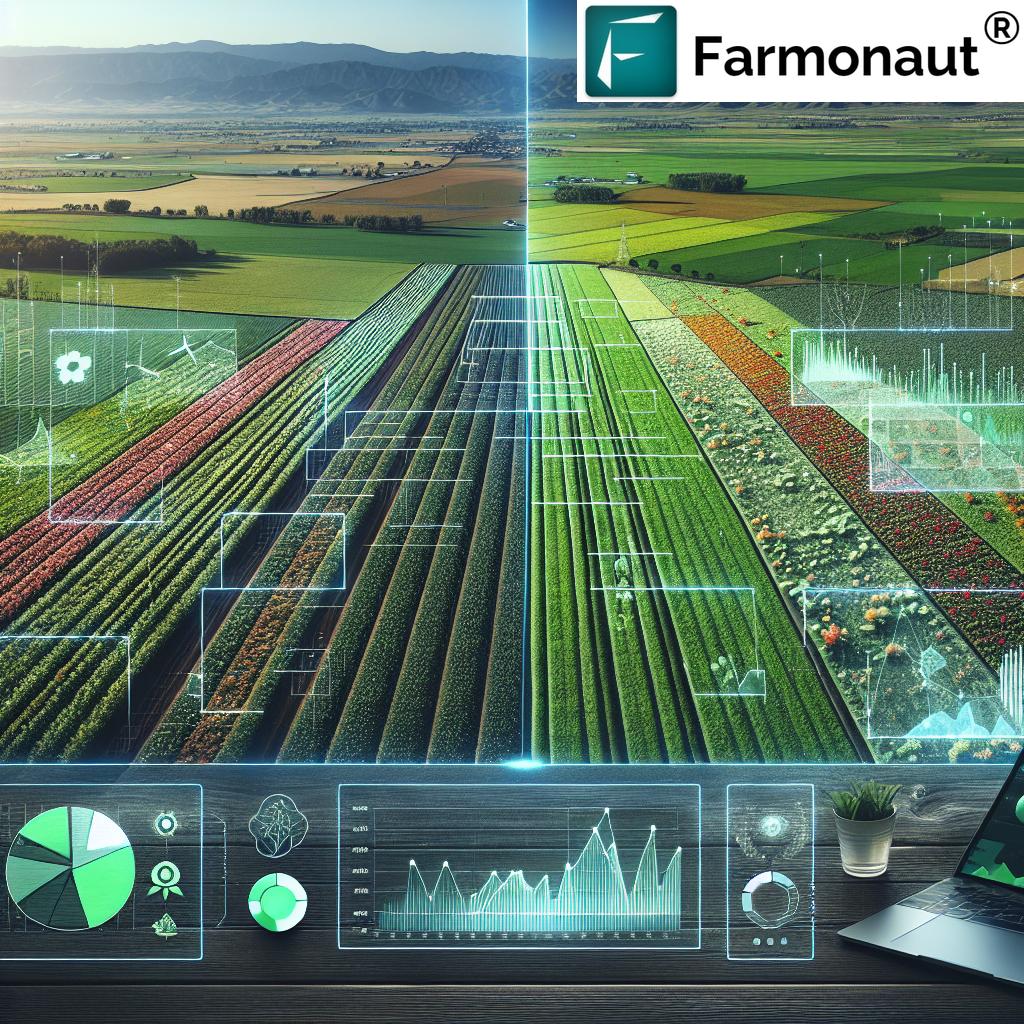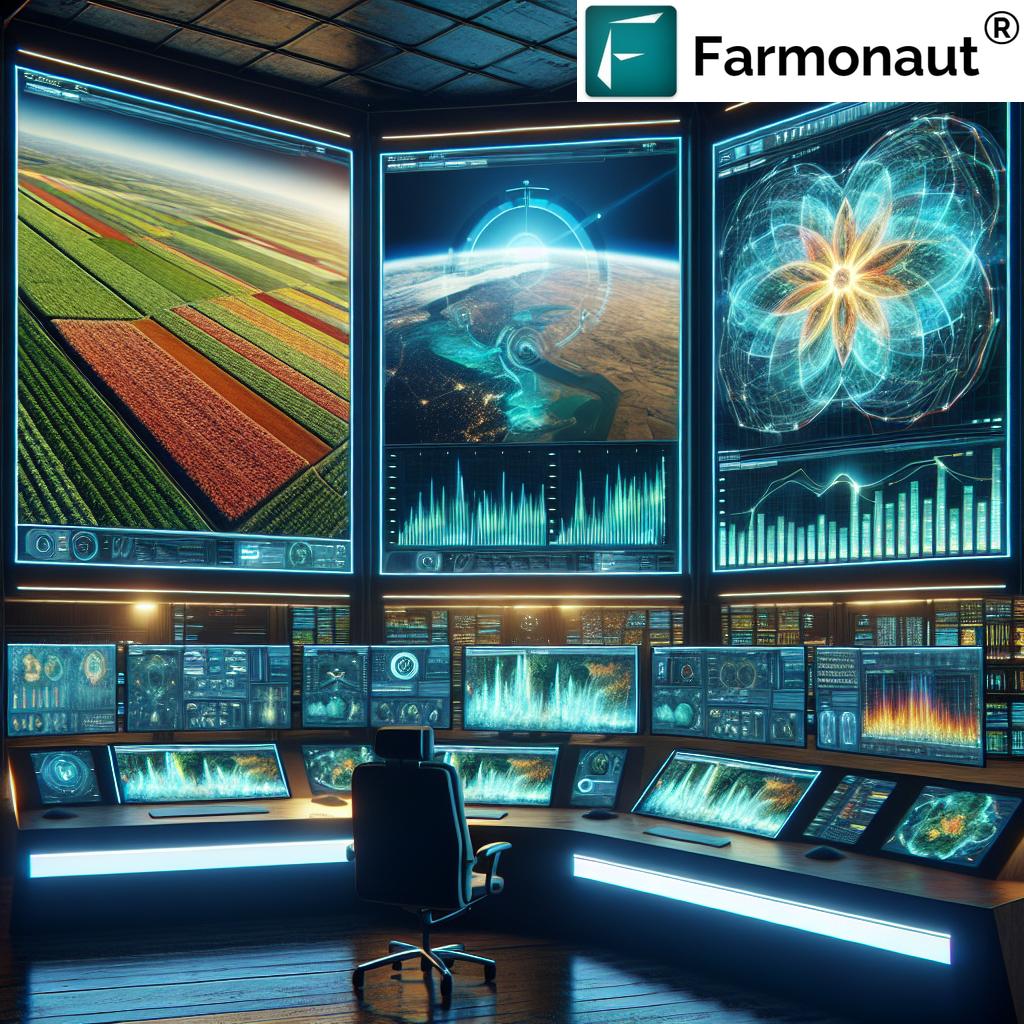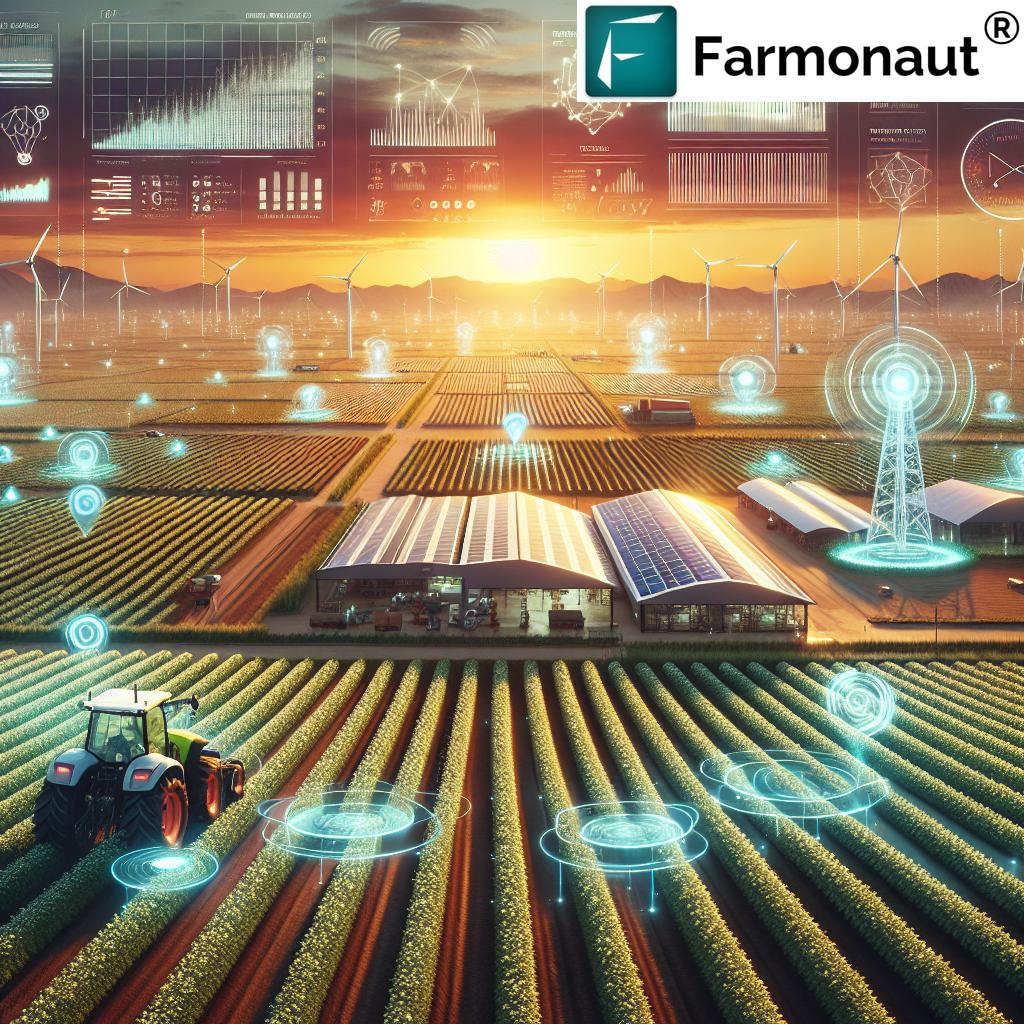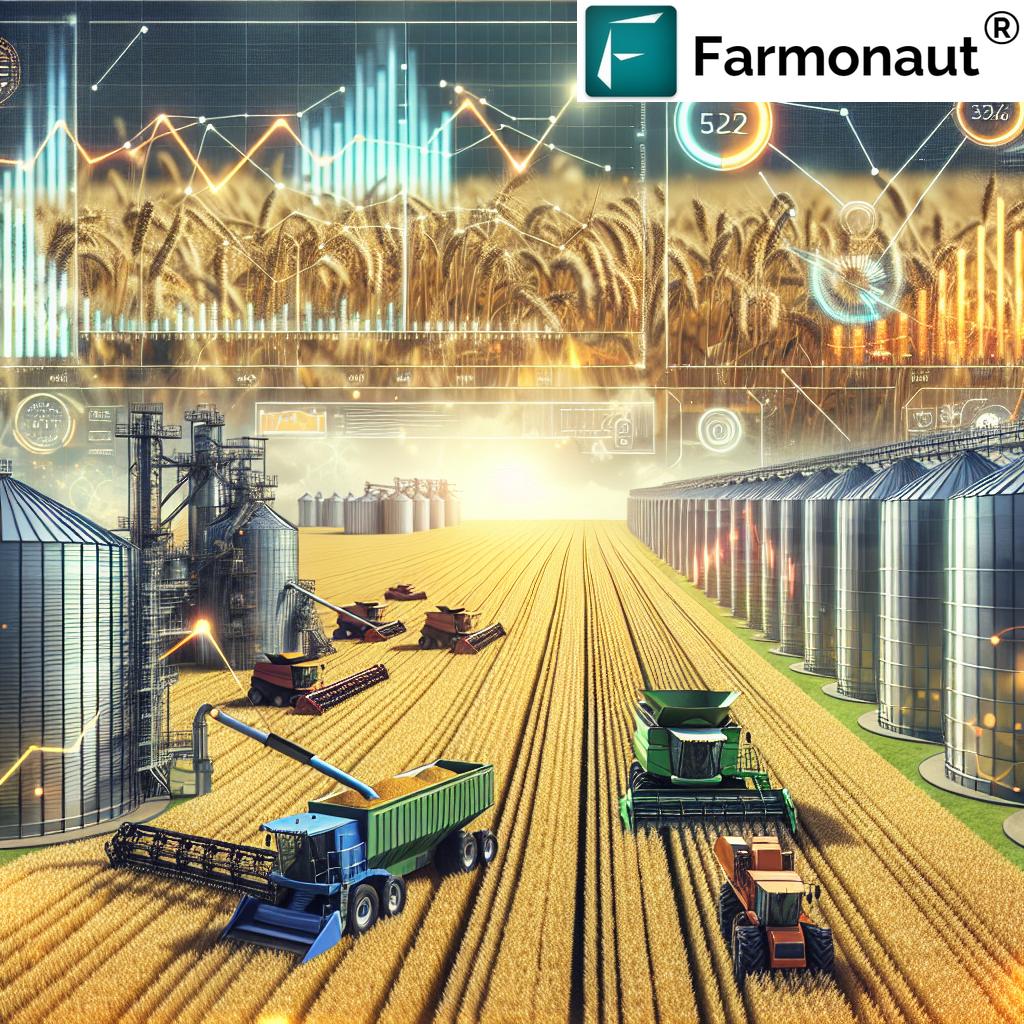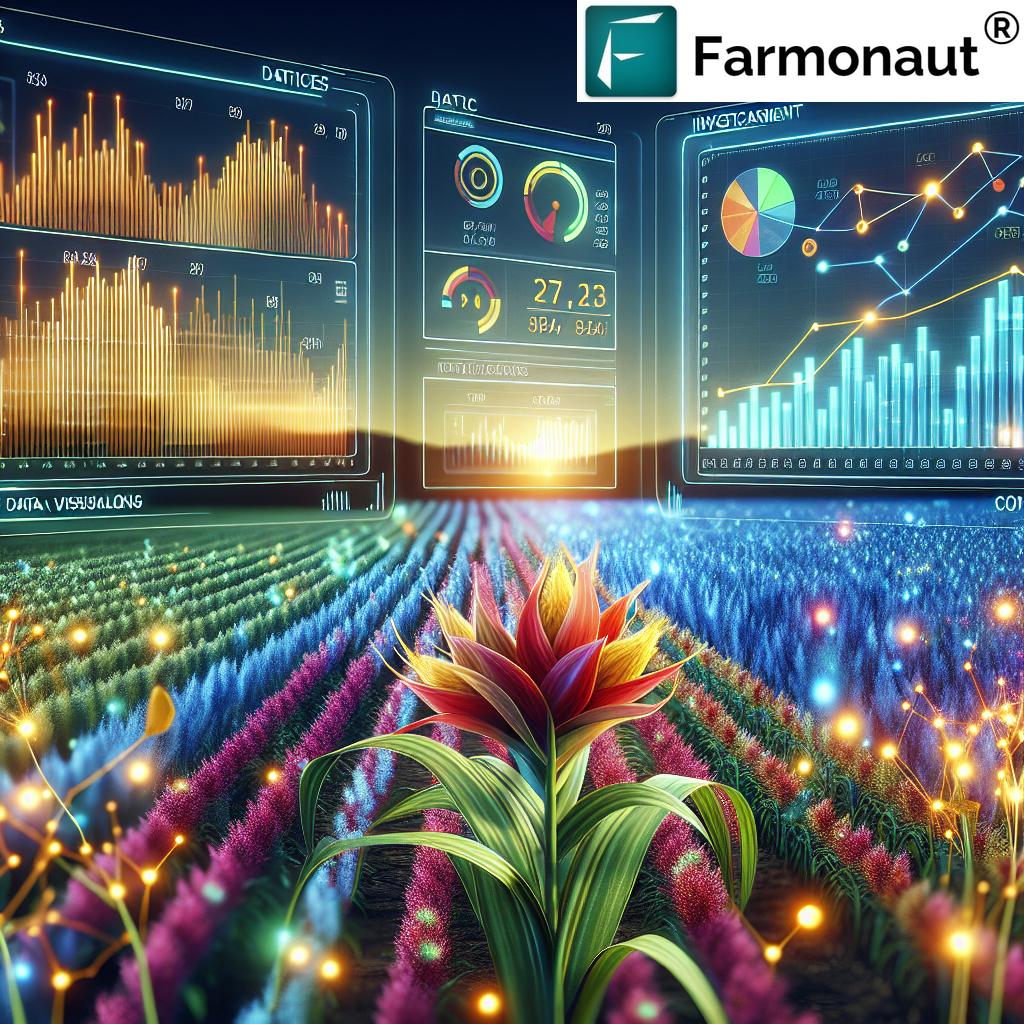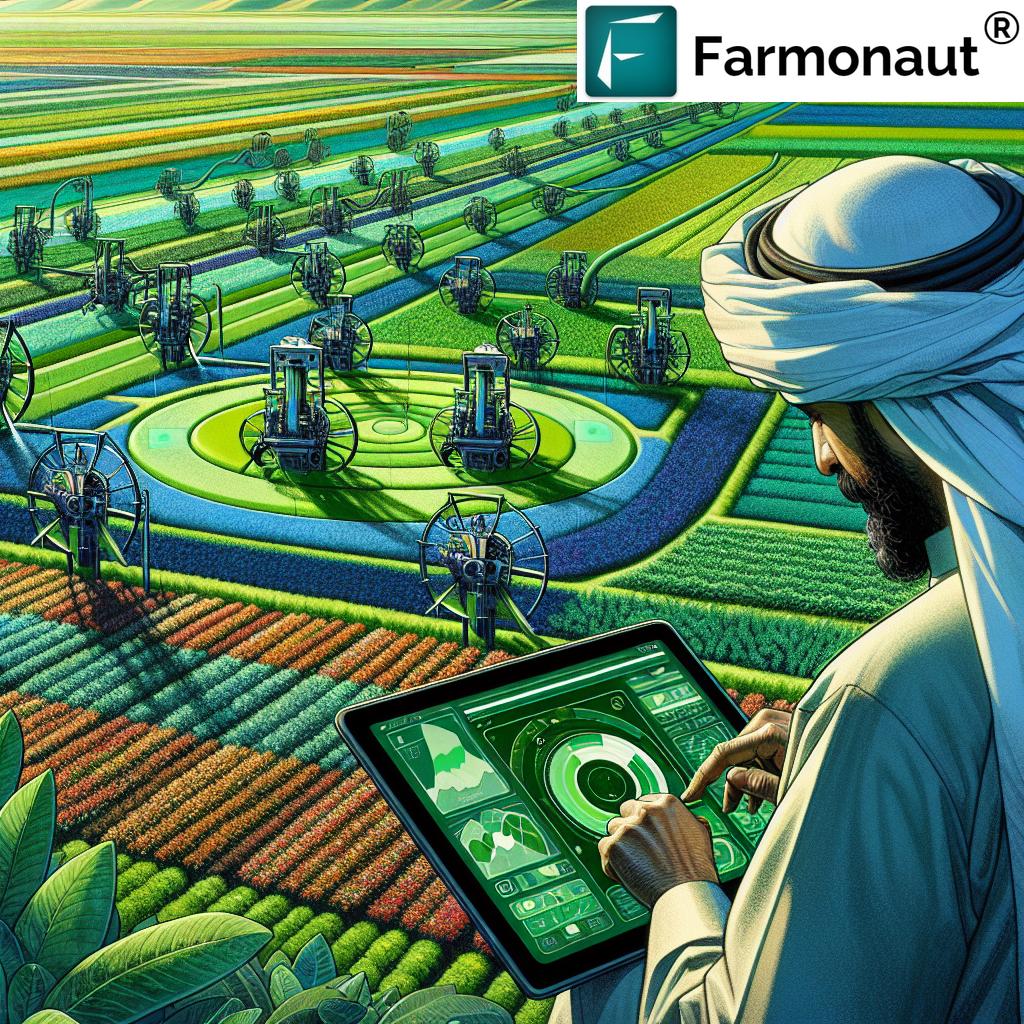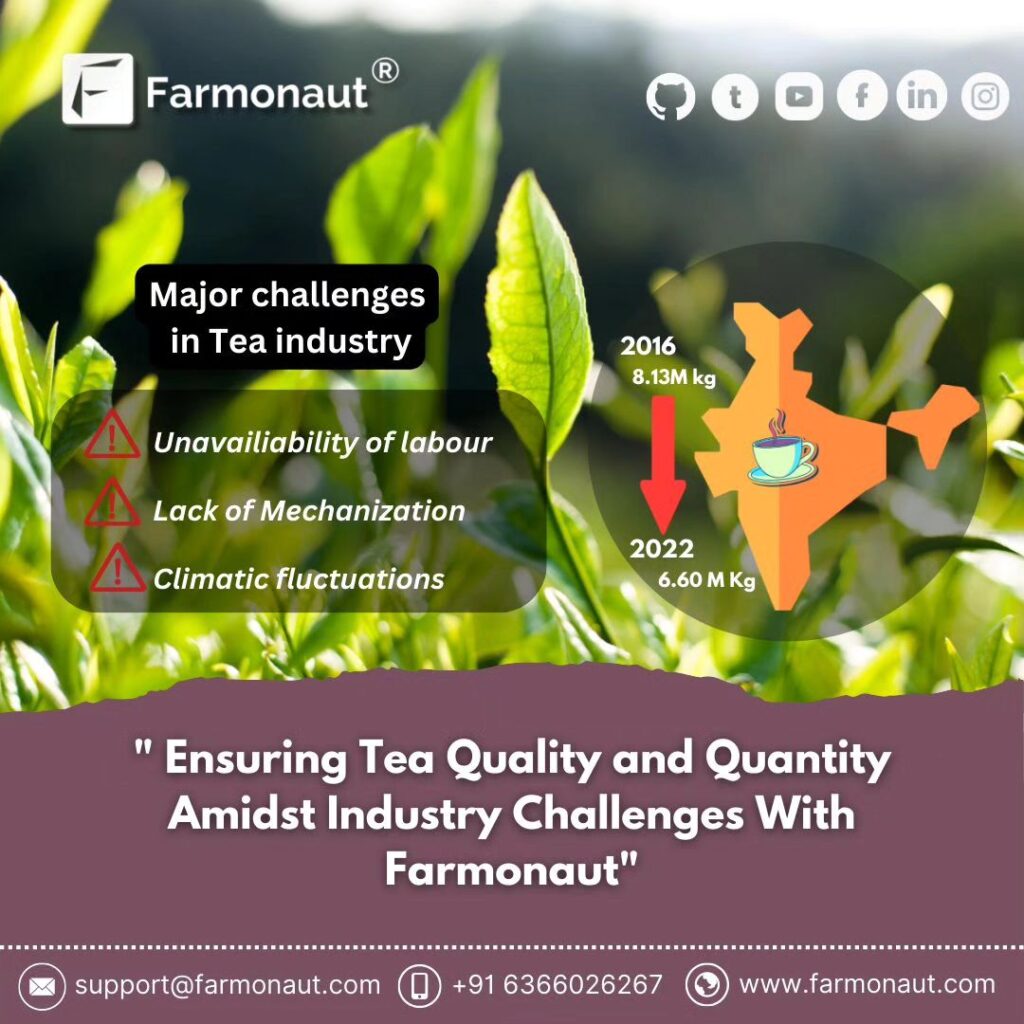AI in Agriculture: 7 Shocking Ways Tech Transforms Farming
“AI-powered precision farming can increase crop yields by up to 30% compared to traditional methods.”
Introduction
Artificial Intelligence (AI) in agriculture is nothing short of a technological revolution. As the global population soars and climate conditions become increasingly unpredictable, our farming practices face mounting challenges. The integration of precision farming technologies, autonomous tractors, and advanced agriculture data analytics has empowered farmers to optimize resource use, maximize productivity, and embrace sustainable farming practices. In this comprehensive blog, we explore 7 shocking ways AI transforms farming, improves our crop yields, controls costs, and paves the way for a sustainable future. Let’s dive in and discover how these innovations are revolutionizing every aspect of the agricultural sector.
What is AI in Agriculture? Understanding the Revolution
When we talk about AI in agriculture, we’re referring to the use of computer systems that can interpret data, learn from it, make decisions, and execute actions—often via smart equipment or autonomous machines. This new era is marked by the convergence of satellite imagery in farming, sensors, machine learning algorithms, and cloud-based platforms, all working together to bring actionable insights directly to farmers’ fingertips.
- Integrating AI technologies into agriculture enables precise decision-making at every stage of crop production.
- Real-time data analytics empower us to respond quickly to changing weather, pest outbreaks, and soil conditions.
- AI-driven tools help us reduce waste, lower input costs, and minimize our environmental impact.
With companies like Farmonaut, which delivers advanced, satellite-based farm management solutions, even small and medium-sized farms can now access affordable precision agriculture.
How AI in Agriculture is Transforming Farming
Below, we break down seven game-changing AI technologies and methods reshaping agriculture across the globe. These AI-driven innovations touch everything from crop management and predictive analytics to livestock health and autonomous field operations.
Together, they enable farmers and agri-businesses to make data-driven decisions, deliver targeted interventions, and maintain resilience amid a changing climate.
“Autonomous tractors can reduce labor costs in agriculture by as much as 60% through automated field operations.”
1. Precision Farming: The Power of Accurate Decisions
Precision farming harnesses AI, big data, and remote sensing to deliver the right amount of water, nutrients, and protection where it matters most. By analyzing data from satellite imagery, in-field sensors, and weather forecasts, AI-powered platforms like Farmonaut allow us to:
- Monitor crop health in real time with satellite imagery in farming and drones, detecting even subtle changes in vegetation.
- Assess soil conditions, moisture levels, and nutrient status to guide efficient irrigation and fertilizer application.
- Identify problem areas—such as zones suffering from disease or pest infestation—enabling targeted interventions that minimize resource waste and chemical usage.
The result? Resource optimization, reducing environmental impact, and significant increases in yields and farm profitability. Farmonaut’s subscription-based platform brings these precision farming capabilities to farms of all sizes, without expensive hardware.
2. Predictive Analytics: Data-Driven Success
Using machine learning and vast datasets, predictive analytics supports smarter decision-making for farmers and agribusinesses. AI algorithms analyze historical data, ongoing weather patterns, and real-time sensor feeds to:
- Forecast crop yields, estimate harvest times, and optimize planting schedules to take advantage of favorable weather conditions.
- Predict market trends, helping us determine the best times to plant and sell our produce for maximum profitability.
- Mitigate risk from extreme weather events by providing early warnings, allowing for proactive planning and insurance decisions.
Farmonaut’s agriculture data analytics capabilities further empower farmers with real-time and seasonal insight into soil moisture, crop health, and more—driving up efficiency and reducing losses.
3. Automated Machinery & Autonomous Tractors
Autonomous tractors and AI-driven machinery are revolutionizing modern farming by diminishing our reliance on manual labor and ensuring unparalleled accuracy in the field. These intelligent machines leverage computer vision and AI algorithms to:
- Navigate fields autonomously for planting, fertilizing, watering, and harvesting tasks—day or night.
- Identify crops, weeds, and obstacles, enabling precise operations that minimize wastage of seeds, water, or chemicals.
- Reduce labor costs by up to 60%, as machines complete repetitive and physically demanding tasks with minimal human oversight.
With real-time monitoring through platforms like Farmonaut and affordable access to AI insights, even medium-scale farms can benefit from these efficiencies without massive equipment outlays.
4. AI Crop Monitoring & Disease Detection
The combination of AI-powered detection and remote sensing from satellites or drones enables early identification of crop diseases, nutrient deficiencies, and pest infestations:
- High-resolution satellite imagery in farming allows us to monitor crop health across large tracts of land daily or weekly.
- AI-based analysis detects subtle patterns or color changes in plants, often before symptoms are visible to the naked eye.
- Prompt alerts allow targeted interventions, helping minimize yield losses, reduce the spread of disease, and cut dependency on chemical treatments.
Farmonaut’s Jeevn AI Advisory System delivers personalized insights and real-time recommendations, equipping farmers to mitigate threats before they escalate into widespread crop loss.
5. Supply Chain Optimization: From Farm to Table
Modern AI applications in supply chain management ensure food moves efficiently from field to consumer, reducing waste and maximizing freshness. How?
- Predictive analytics estimate demand well in advance, preventing surplus and shortage cycles.
- AI-powered logistics tools optimize delivery routes, saving fuel and minimizing carbon footprint—making agriculture more sustainable.
- Integrated systems can track and trace produce using blockchain, enhancing consumer trust and reducing fraudulent claims in supply chains.
Farmonaut offers blockchain-based traceability solutions for crops, textiles, and food industries, making transparency and trust standard throughout every supply chain.
6. AI for Livestock Monitoring
AI extends far beyond crops—it plays a significant role in animal health and livestock management, enabling farmers to:
- Monitor animal health and activity through wearable or environmental sensors, capturing vital signs and feeding patterns for early disease detection.
- Optimize resource use, ensuring animals get balanced nutrition with minimal waste.
- Improve livestock welfare and reduce veterinary costs through proactive, data-driven interventions.
Farmonaut’s fleet management platform even supports large agricultural enterprises with efficient vehicle and equipment allocation for livestock and field operations.
7. AI-powered Pest & Weed Control
Tackling weeds and pests is a constant challenge in agriculture. AI-powered pest control systems—including automated weeding robots and smart drones—are transforming this landscape by:
- Using computer vision and advanced sensors to identify weeds vs. crops with pinpoint accuracy.
- Delivering precise, targeted treatment (minimizing or even eliminating chemical herbicides and pesticides).
- Reducing environmental impact and promoting sustainable farming practices by only treating affected areas rather than blanket-spraying fields.
Such innovations allow us to minimize pesticide use, promote biodiversity, and ensure long-term soil health. Farmonaut’s resource management tools complement these technologies by helping optimize the use of water, fertilizers, and control agents—lowering cost and preserving our ecosystem.
AI for Climate Adaptation and Sustainable Practices
The threats posed by climate change require continuous adaptation. AI-driven analysis of changing weather patterns and extreme events allows us to:
- Identify resilient crop varieties and recommend adjusted planting schedules to suit new environmental conditions.
- Monitor carbon emissions and track environmental impact using Farmonaut’s carbon footprinting tools.
- Support sustainable farming practices that reduce resource waste and maintain optimal soil health.
With the integration of satellite data, AI, and blockchain, our farms are better equipped to not just survive but thrive under adverse conditions, ensuring food security for a growing global population.
Comparative Impact Table: 7 AI Technologies in Agriculture
The table below summarizes key AI technologies in farming, their main applications, and their estimated impact based on industry benchmarks:
Farmonaut: Affordable AI-Driven Precision Farming Solutions
At Farmonaut, our mission is to make precision agriculture and powerful farm management solutions accessible to all—no matter your farm’s size or geography. Here’s how Farmonaut stands out:
- Satellite-Based Crop Health Monitoring: Get insights into your crop health (NDVI), soil moisture, and more with multispectral images analyzed by AI—NO expensive hardware required.
- Jeevn AI Advisory System: Receive personalized advisory and actionable weather forecasts, customized for your farm using AI and big data.
- Blockchain Traceability: Track your produce from soil to shelf, combat counterfeiting, and build consumer trust with blockchain-secured supply chain data.
- Resource & Fleet Management: With tracking tools for vehicles and machinery, improve operational efficiency, safety, and reduce costs.
- Carbon Footprinting & Sustainability: Track your environmental impact, demonstrate sustainability, and comply with regulatory or financing requirements.
- Access for All: Farmonaut is available as an easy-to-use Web and Mobile App (Android & iOS) and via API or Developer Docs for technical users.
- Crop Loan and Insurance Verification: With satellite-verified farm data, access financing faster and reduce insurance fraud risks.
- Large-scale & Plantation Management: Manage big agri-enterprises efficiently with Farmonaut Agro Admin App.
Benefits: Boosting Productivity, Reducing Costs, Ensuring Sustainability
Integrating AI in agriculture offers quantifiable advantages that impact every stakeholder—from smallholders to multinational companies:
- Increased Efficiency & Productivity: Automated task execution and rapid data analysis free up farmers to focus on strategic decisions, raising productivity & optimizing resource use.
- Reduced Input Costs: By optimizing water, fertilizers, and pesticides, AI-driven farming reduces operational costs and financial risk.
- Improved Crop Quality: Early and accurate AI crop disease detection ensures higher-quality, marketable yields.
- Environmental Sustainability: Precision interventions and data-driven management help maintain soil health, reduce chemical and water use, and comply with green regulations.
- Enhanced Supply Chain: Blockchain and AI-powered traceability streamline logistics, improve transparency, and reduce wastage throughout the agricultural supply chain.
Challenges: Overcoming Barriers to Adoption
While the shift to AI in agriculture offers immense rewards, we must acknowledge and address certain barriers:
- High Initial Investment: Setting up sensors, satellite subscriptions, or autonomous equipment can be costly—especially for smallholder farmers. Affordable, subscription-based platforms like Farmonaut alleviate some of this burden by eliminating hardware needs.
- Data Privacy & Security: As agricultural data is collected and analyzed, protecting privacy and ensuring ethical use are paramount. Blockchain-based traceability helps secure data across the food supply chain.
- Technical Expertise: Effective use of AI solutions may require technical training. Farmonaut’s easy-to-use interface and mobile access make advanced insights simple for users at all levels.
- Integration Obstacles: Incorporating new AI systems with existing farm equipment and workflows can require additional investment and support.
By investing in education, affordable digital platforms, and open API-based integrations, the sector is overcoming these hurdles for a more inclusive and tech-powered agricultural future.
The Future of AI in Agriculture
Ongoing advancements in AI, satellite, and machine learning technologies signal a bright future for the agri-sector:
- Farm management solutions will become even more affordable and scalable, fostering smallholder adoption worldwide.
- Better data privacy frameworks and increased educational outreach will empower the next generation of digital farmers.
- Environmental monitoring—including carbon footprinting—will play a bigger role in shaping sustainable food production, potentially unlocking new incentives for climate-smart farming.
As AI in agriculture continues to evolve, it will undoubtedly dictate the pace of growth, resilience, and sustainability in global food systems.
Frequently Asked Questions (FAQ)
-
Q: What is the role of AI in agriculture?
A: AI analyzes farm data, automates critical tasks, helps in decision-making, and enables proactive management of crops, resources, and environmental factors, resulting in optimized yields and reduced costs. -
Q: How does satellite imagery improve precision farming?
A: Satellite imagery enables farmers to monitor large fields efficiently, detect early changes in vegetation health, guide irrigation and fertilizer application, and reduce unnecessary chemical usage. -
Q: Are Farmonaut’s solutions suitable for smallholders?
A: Yes, Farmonaut’s services are designed to be accessible and affordable for farms of all sizes, providing precision agriculture capabilities through mobile and web apps, without requiring expensive on-field equipment. -
Q: What is autonomous machinery in agriculture?
A: These are field robots or tractors guided by AI and machine vision, capable of tasks like planting, spraying, and harvesting with little to no human intervention, thus reducing labor costs and increasing efficiency. -
Q: How does AI contribute to sustainable farming practices?
A: By reducing the overuse of water, fertilizers, and pesticides, targeting interventions, and helping monitor carbon emissions, AI ensures resource efficiency and promotes environmental sustainability in agriculture. -
Q: Can I use Farmonaut’s services for plantation or large-scale farming?
A: Absolutely! With the Farmonaut Agro Admin App, large plantations can manage thousands of hectares, optimize fleet operations, monitor carbon footprint, and streamline every aspect of field management. -
Q: Is API access available for integrating farm data into other platforms?
A: Yes. Developers and businesses can use Farmonaut’s comprehensive API and Developer Documentation to integrate satellite and weather data for customized analytics or to power third-party agritech solutions.
Conclusion: Embracing the AI Revolution in Agriculture
The integration of AI into agriculture marks a turning point in how we grow food, safeguard our planet, and ensure food security for future generations. From precision farming technologies to AI crop disease detection, from autonomous tractors to blockchain-based transparency, these innovations offer us a glimpse into a more resilient, profitable, and sustainable world.
With platforms like Farmonaut, every farmer can now harness the full power of AI in agriculture—regardless of farm size or budget. By democratizing access to data and real-time advisory, empowering better decisions, and supporting responsible environmental stewardship, AI is set to shape the farms—and the farmers—of tomorrow. Let’s embrace this revolution.


